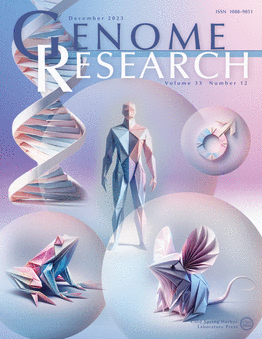Inferring disease progressive stages in single-cell transcriptomics using a weakly-supervised deep learning approach
IF 6.2
2区 生物学
Q1 BIOCHEMISTRY & MOLECULAR BIOLOGY
引用次数: 0
Abstract
Application of single-cell/nucleus genomic sequencing to patient-derived tissues offers potential solutions to delineate disease mechanisms in human. However, individual cells in patient-derived tissues are in different pathological stages, and hence such cellular variability impedes subsequent differential gene expression analyses. To overcome such heterogeneity issue, we present a novel deep learning approach, scIDST, that infers disease progressive levels of individual cells with weak supervision framework. The inferred disease progressive cells displayed significant differential expression of disease-relevant genes, which could not be detected by comparative analysis between patients and healthy donors. In addition, we demonstrated that pretrained models by scIDST are applicable to multiple independent data resources, and advantageous to infer cells related to certain disease risks and comorbidities. Taken together, scIDST offers a new strategy of single-cell sequencing analysis to identify bona fide disease-associated molecular features.使用弱监督深度学习方法推断单细胞转录组学中的疾病进展阶段
单细胞/细胞核基因组测序在患者来源的组织中的应用为描述人类疾病机制提供了潜在的解决方案。然而,患者来源组织中的单个细胞处于不同的病理阶段,因此这种细胞变异性阻碍了随后的差异基因表达分析。为了克服这种异质性问题,我们提出了一种新的深度学习方法,scIDST,该方法可以在弱监督框架下推断单个细胞的疾病进展水平。推断出的疾病进展细胞显示出疾病相关基因的显著差异表达,这在患者和健康供者之间的比较分析中无法检测到。此外,我们证明了scIDST预训练模型适用于多个独立的数据资源,并且有利于推断与某些疾病风险和合并症相关的细胞。综上所述,scIDST提供了一种新的单细胞测序分析策略,以确定真正的疾病相关的分子特征。
本文章由计算机程序翻译,如有差异,请以英文原文为准。
求助全文
约1分钟内获得全文
求助全文
来源期刊

Genome research
生物-生化与分子生物学
CiteScore
12.40
自引率
1.40%
发文量
140
审稿时长
6 months
期刊介绍:
Launched in 1995, Genome Research is an international, continuously published, peer-reviewed journal that focuses on research that provides novel insights into the genome biology of all organisms, including advances in genomic medicine.
Among the topics considered by the journal are genome structure and function, comparative genomics, molecular evolution, genome-scale quantitative and population genetics, proteomics, epigenomics, and systems biology. The journal also features exciting gene discoveries and reports of cutting-edge computational biology and high-throughput methodologies.
New data in these areas are published as research papers, or methods and resource reports that provide novel information on technologies or tools that will be of interest to a broad readership. Complete data sets are presented electronically on the journal''s web site where appropriate. The journal also provides Reviews, Perspectives, and Insight/Outlook articles, which present commentary on the latest advances published both here and elsewhere, placing such progress in its broader biological context.
 求助内容:
求助内容: 应助结果提醒方式:
应助结果提醒方式:


